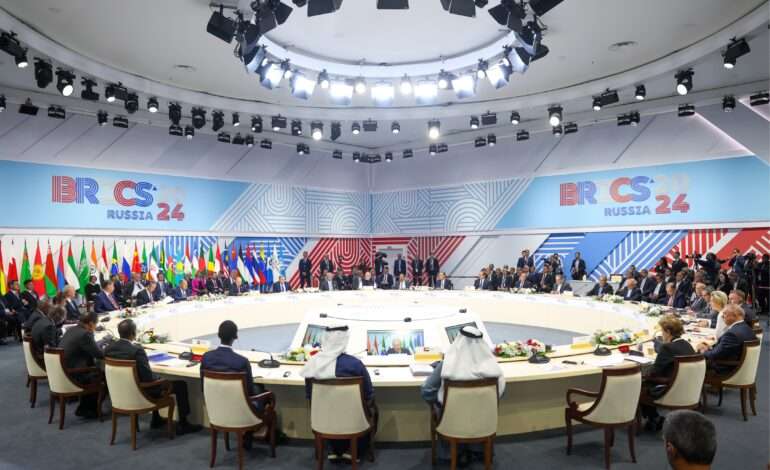
BRICS must balance innovation with digital sovereignty for Global South
As BRICS prepares for its 2025 Summit in Rio de Janeiro (July 6–7), the expanded bloc—now including Indonesia, Iran, Egypt, Ethiopia, Saudi Arabia, and the UAE—faces a critical test: balancing innovation with digital sovereignty while reinforcing the Global South’s role in shaping the global order.
Brazil, the current BRICS chair, has consciously distanced the bloc from becoming an anti-West alliance. Instead, it has steered discussions toward six core areas: a more efficient BRICS payment system, ethical AI governance, climate finance reform, health cooperation, global peace architecture, and institutional strengthening.
The push for de-dollarization gains momentum as BRICS nations explore alternatives to the US-led monetary system. The IMF reported a decline in dollar reserves globally, and BRICS members are advancing mechanisms like a BRICS basket currency and digital payment networks to reduce reliance on SWIFT.
AI governance also features prominently. India, ranked fourth in global AI vibrancy, champions ethical AI practices. The BRICS-backed New Development Bank (NDB) is poised to finance AI-driven inclusive growth across member nations, guided by UNESCO’s 2021 recommendations.
Climate finance remains a divisive issue. BRICS nations argue that the West has failed its commitments under the UNFCCC framework. With nearly half of the world’s population and a third of global GDP, BRICS is investing in green infrastructure but insists that development must go hand in hand with fairness and financial support.
India’s digital leadership through initiatives like Digital India and DPI offers a model for inclusive growth. As Finance Minister Nirmala Sitharaman noted, sustainable development requires building trust and fairness, not just funding.
As protectionism rises and trust erodes globally, BRICS has a unique opportunity to redefine global governance—grounded in equity, innovation, and sovereignty for the Global South.